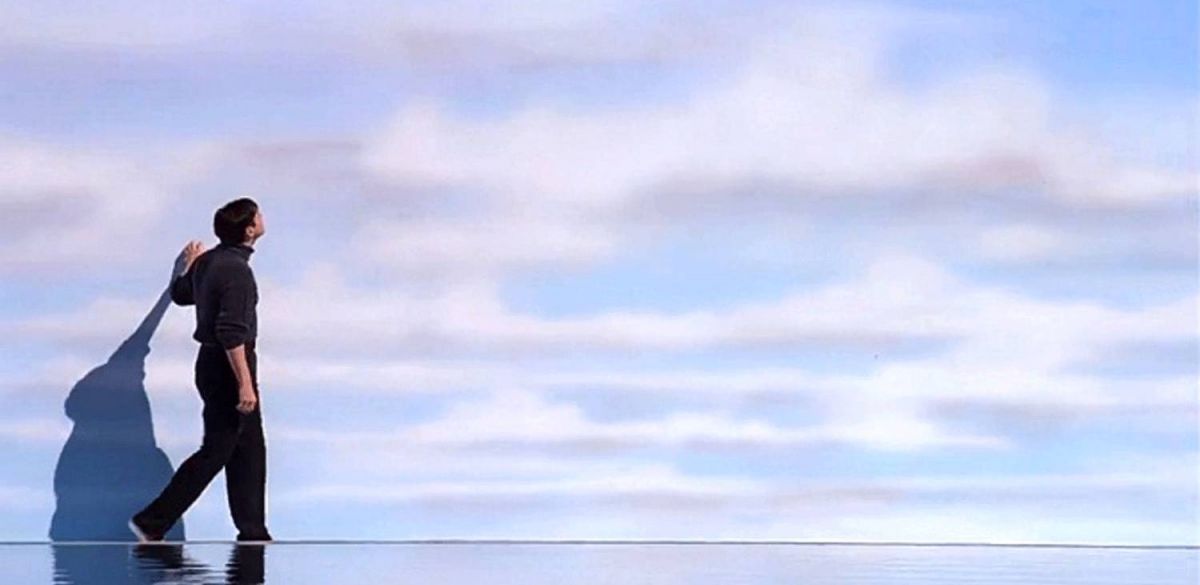The Truman Show at 25
The late 1990s saw a flurry of cultural production, and as the millunium approached and Y2K loomed, the west was preoccupied with the relationship between reality and representation. Whilst postmodernism had reached its tired conclusion in the United States and the critic James Wood had sourly coined the term “Hysterical Realism” in reference to Zadie Smith’s zeitgeist novel White Teeth (2000), Hollywood cinema was evocatively exploring the nature of reality as a simulation, with films such as The Truman Show (1998), Pleasantville (1998) and The Matrix (1999).
The Truman Show, directed by Peter Weir, entered seamlessly into popular consciousness. However, its endurance lies in its messaging and stark warnings about dehumanising people. Privacy is an essential part of living an authentic life. The film unfolds arounds the daily life of Truman Burbank, an insurance broker living in the picture-perfect community of Seahaven. Truman soon comes to realise that his apparently ordinary life is in fact a simulation, manufactured by a television company and screened to 2 billion people across the world. His desperation to break free of ideological structures makes him primetime viewing. Audiences are fascinated by his naïve authenticity, unwittingly revealing to us (what he significantly fails to do for his intra-filmic audience) the dangers of our own willingness to snuggle happily into the routine of passive observance perpetuated by mass media consumption. The reality television revolution of the 1990s, where ordinary people were catapulted into the public eye on shows like Channel 4’s Big Brother, which began in 2020 and returns to screens this August after a five year hiatus. Twenty million viewers voted during the first series and audience figures peaked at 10 million during series three. The appetite for this genre snowballed, with shows examining every aspect of life – from finding a partner on Love Island (2015-ongoing) to cooking the perfect cake on The Great British Bake Off (2010-ongoing) and even changing your identity in The Circle (2020-ongoing).
Early in the film, the show’s mastermind director, Christoff, addressed the camera directly: “We’ve become bored with watching actors give us phony emotions … no scripts, no cue cards. It isn’t always Shakespeare, but it’s real. It’s a life.” Truman’s “real life” is the double-bind, which embodies the increasingly mediated version of reality now seen in computer-generated films, reality television and even AI – resulting in a desperate need to evoke the truth reinforcing its hyper-simulated nature. This is what sociologist Jean Baudrillard described as a “perfect descriptive machine which provides all the signs of the real and shortcuts all its vicissitudes” in Simulacra and Simulation (1981). We are so intensely fixated on imitating reality perfectly, that we forget what it was in the first place.
The film tells a story of freedom. It is both idealistic and complexly dialectic. In a famous final scene, Truman (meta)physically sails to the wall which marks the end of his own universe and dramatically exits. The pair of security guards glued to the screen shrug and switch nonchalantly to the next show. The viewer, supposedly empowered by the privilege of using a televised subject as a source of entertainment, is paradoxically enslaved by the reliance on the screen to gain assurance of freedom in the real world. Truman’s liberation is what reinforces our imprisonment in the tyranny of the hyper-mediated world we are accustomed to and bored of, but incapable of escaping.
Twenty-five years on from its release, The Truman Show remains a remarkably resonant prediction of reality as it is now perceived. Screenwriter and London College of Communication lecturer Ted Wilkes comments that “we all want freedom, to be loved and to find an authentic version of ourselves. We feel all of these things so acutely within the film. Beyond the social critiques within the piece there is an emotional core which stays with us long after viewing it. We are all Truman, and we want to see him set free.” Further still, one might argue that Truman’s significance is not that he is an everyman, but that he is a true man. The show’s tagline, “how’s it going to end?” is answered by nobody else but Truman himself.
Words: Eitan Orenstein








